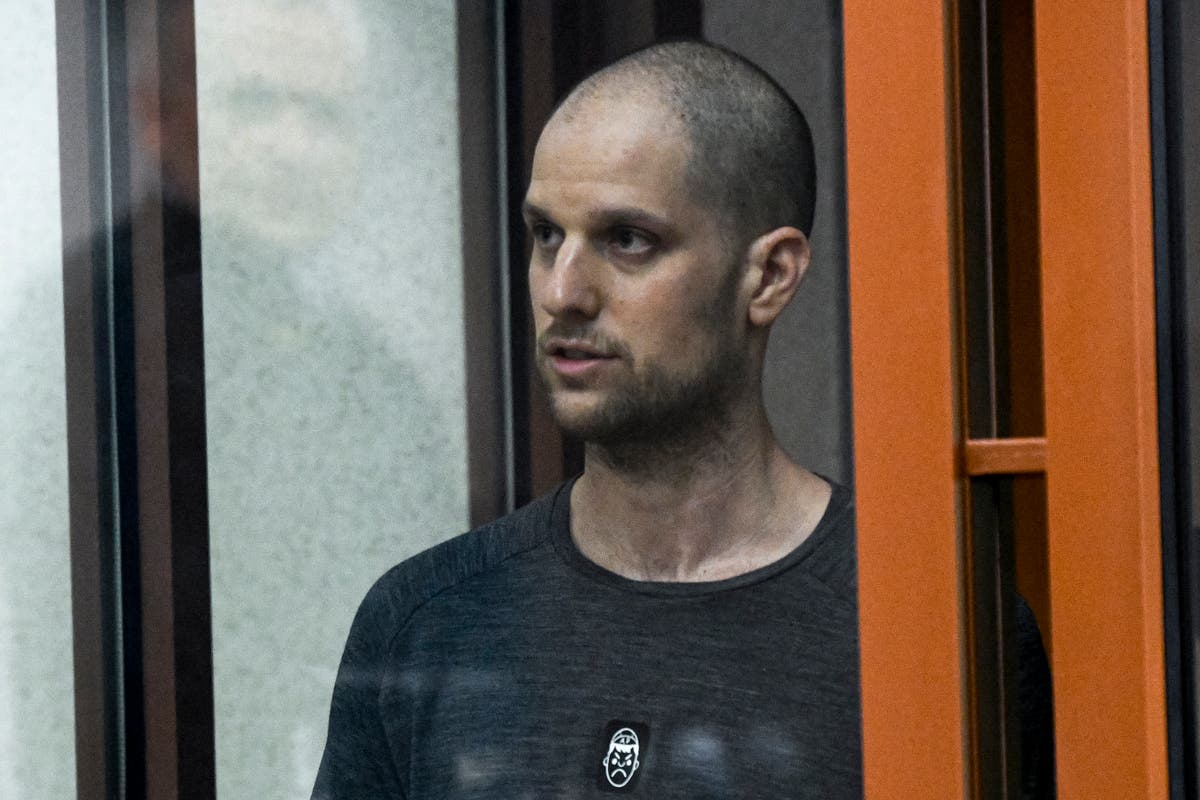The largest prisoner swap since the end of the Cold War did not seem likely even a few days ago, at least to the outside world. The willingness of the Biden White House and Putin’s Kremlin to engage in such a trade could not easily have been foreseen from the condition of the two powers’ relations.
Complicated, to say the least, by the war in Ukraine, tensions in the Middle East and uncertainties about the outcome of this year’s US elections, stalemate and stasis would have been the more likely outlook. Instead, presumably with the active engagement of the ever-ambiguous President Erdogan of Turkey, two substantial job lots of assorted journalists, spies, double agents and others have been released.
Poland, Germany, Norway, Slovenia and Belarus were also among the countries involved in the project. It is, ironically, a remarkably successful exercise in international cooperation; if only such a spirit could spread beyond the murky environs of espionage and state hostage-taking.
It has to be stressed, notwithstanding the release of innocent Western civilians, that this is not an entirely symmetrical exercise. The high-profile case of Evan Gershkovich makes the case eloquently. A reporter for the Wall Street Journal, Mr Gershkovich was sentenced by Russia to 16 years in prison last month, on charges of spying and espionage. He has spent nearly 500 days in what must have been dreadful conditions, simply because he was a useful bargaining chip for Mr Putin.
The Russians claim he was attempting to gather intelligence on their battle tank programme. This is an especially asinine notion, as it is perfectly apparent from the battlefields of Ukraine that the Russian tank industry is one of the weaker points in that nation’s armoury. You do not need to be a spy to see what is going wrong there.
US Marine veteran Paul Whelan and Russian-American radio journalist Alsu Kurmasheva are others now reportedly ready to restart their lives and tell their stories. The Kremlin is also expected to release dissident Vladimir Kara-Murza who has been a vocal detractor of Russian president and former KGB officer Vladimir Putin. Kara-Murza was given a 25-year sentence in April of last year on charges including treason, after he came out against Russia’s unprovoked invasion of Ukraine.
It shows that all the reportage and campaigning by Western media organisations, including The Independent, to secure their release and for real justice to prevail has been vindicated – and triumphantly.
By contrast, the FSB agent and the other Russian captives were found guilty in Western courts through due process and engaged in sometimes deadly activity. Vadim Krasikov, for example, spent what turned out to be a comparatively brief sojourn in a German jail for the murder of Zelimkhan Khangoshvili, a Chechen rebel leader, executed in a Berlin park in 2019. As the UK witnessed in the case of the Skripals (subject of a prior prisoner release) and the Salisbury poisonings, the Kremlin and its informal penumbra of freelance agents have a long reach.
It is thus also right, even at a moment of jubilation at the return to freedom of innocent journalists, to acknowledge that such prisoner exchanges are a tawdry, mercenary business. There is a legitimate argument for not engaging in such trades at all, because they merely encourage the likes of Vladimir Putin and his Belarusian puppet Aleksandr Lukashenko, to take more journalists, diplomats and civilians hostage, and subject them to the privations of their grim prison systems in the hope of getting one of their own spies or terrorists back.
Yet, such is the Cold War-style realpolitik now prevailing that only such a process of negotiation can save the lives of Westerners working in Russia, especially in the media, for as long as the Putin era lasts. It is notable, and predictable, that Donald Trump, graceless as ever, has scorned the prisoner swap, and claimed that he rejected such a deal in the past.
Whatever the truth about that, it is the case that when Mr Trump was in the White House, he did not get the Western prisoners back. Now President Biden has achieved that elusive goal in the least propitious of circumstances. If we are to have a cold war with Russia, we can at least try to revive some of the more useful of the old Cold War procedures. It’s for the greater good.

